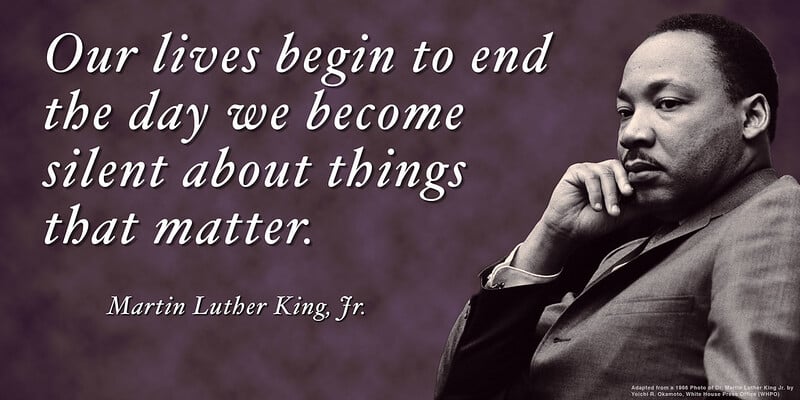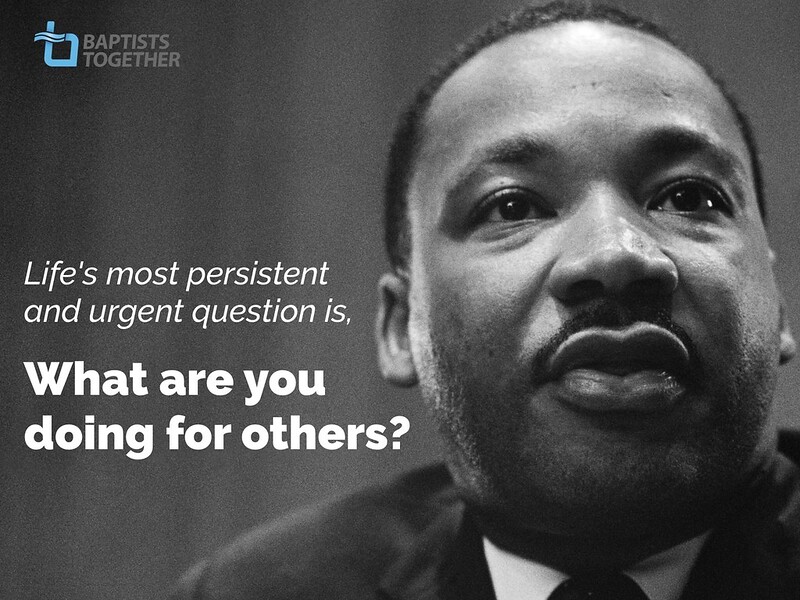
Martin Luther King Day, which will be observed on January 17, 2022, is about more than honoring the legacy of the American civil rights activist. It is the only US federal holiday designated as a national day of service — a "day on, not a day off." Americans are encouraged to celebrate the occasion by participating in service activities to help their local communities.
Born in Atlanta, Georgia, on January 15, 1929, Martin Luther King Jr. (MLK) grew up in a part of the country where segregation was the law. Black and white people dined at different restaurants, attended different schools, and even sat apart in specially marked areas on buses and trains. It was only when he went to work in the tobacco fields of Hartford, Connecticut, in 1944 that MLK realized life was different in other parts of America. In a letter to his father, the then 15-year-old said, "After we passed Washington, there was no discrimination at all. The white people here are very nice. We go to any place we want to and sit anywhere we want to."

MLK returned to Atlanta to attend Morehouse College and, in 1954, became an ordained minister. He could have become a pastor at a church in a progressive state like New York or Massachusetts. Instead, the clergyman, and his wife, Coretta King, chose Montgomery, Alabama, where segregation was alive and well. MLK's quest to achieve racial equality began in December 1955 after civil rights activist Rosa Parks was arrested for not giving up her bus seat for a white passenger.
Upset at the injustice, MLK called on the city's African American residents to avoid taking buses. Despite having no other means of transportation to get to work, they agreed — not for a week or month, but for an entire year! As news of the boycott spread, African American residents from the other Southern States also joined in. The first-ever concerted effort to fight racial discrimination ended in 1956 when the US Supreme Court declared segregation on public transportation illegal.
Buoyed by the success, MLK began traveling across the country to encourage Americans to protest existing segregation policies with peaceful sit-ins, boycotts, and marches. The activist's inspiring speeches spurred millions of people to take action. His most memorable address, 'I Have A Dream,' was delivered in 1963.
The events leading to the oft-quoted speech began in June 1963, when President John F. Kennedy asked the US Congress to approve a bill giving all Americans equal access to public places. To persuade government officials to sign it into law, civil rights leaders asked Americans to stage a peaceful rally in Washington, DC. On August 28, 1963, over 200,000 people from across the country came to the capital to participate in what became known as the "March on Washington." That day, MLK, standing on the steps of the Lincoln Memorial, revealed his dream of living in a country where everyone was treated equally.

The first major milestone towards achieving MLK's dream came with the passing of the Civil Rights Act of 1964, which ended segregation in public places. The law also banned employment discrimination based on race, color, gender, or national origin. The Voting Rights Act of 1965, allowing African Americans to exercise their right to vote in US elections, further helped close the inequality gap. The Fair Housing Act of 1968, prohibiting racial discrimination in the sale, rental, or financing of property, was the final victory in assuring equal rights for all Americans. Unfortunately, MLK was assassinated in Memphis, Tennessee, on April 4, 1968 — just seven days before President Lyndon B. Johnson signed the bill into law.
The clergyman-turned-activist's courage and efforts have allowed all Americans to follow their dreams. It is now up to all of us, both young and old, to protect MLK's footsteps by standing up to societal injustices and helping those in need, especially during these unpredictable times. This January 17, establish your legacy by helping community members impacted by the COVID-19 pandemic — not just on MLK Day, but on an ongoing basis.
Happy Martin Luther King Jr. Day!
Resources: History.com,Wikipedia.org
